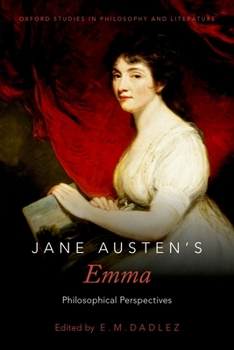Jane Austen's Emma: Philosophical Perspectives
What has Emma Woodhouse, "handsome, clever, and rich, with a comfortable home and very little to distress or vex her" to say to a discipline like philosophy? How is a novel like Emma, inaccurately but not infrequently caricatured as a high-toned version of a pedestrian romance, to supply material for philosophical insight or speculation? Jane Austen's Emma is many things to many readers but it is as inaccurate as it is reductive to consider...
Format:Paperback
Language:English
ISBN:0190689420
ISBN13:9780190689421
Release Date:November 2018
Publisher:Oxford University Press
Length:264 Pages
Weight:0.70 lbs.
Dimensions:0.7" x 5.4" x 8.1"
Customer Reviews
0 rating





